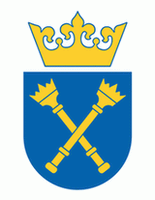Two things [are] more necessary in astronomy than in any other science: patience and organised coöperation. Patience because many of the phenomena develop so slowly that a long time is necessary for them to become measurable, coöperation because the material is too large and too various to be mastered by one man, or even by one institute. And coöperation not only between different workers and institutions all over the world, but also cooperation with predecessors and successors for the solution of problems that require, by their very nature, more than one man's lifetime. The astronomer—each working at his own task...—is always conscious of belonging to a community, whose members, separated in space and time, nevertheless feel joined by a very real tie, almost of kinship. He does not work for himself alone, he is not guided exclusively, and not even in the first place, by his own insight or preferences, his work is always coordinated with that of others as a part of an organised whole. He knows that, whatever his special work may be it is always a link in a chain, which derives its value from the fact that there is another link to the left and one to the right of it. It is the chain that is important, not the separate links.
Willem de Sitter, "Relativity and Modern Theories of the Universe," Kosmos (1932)


